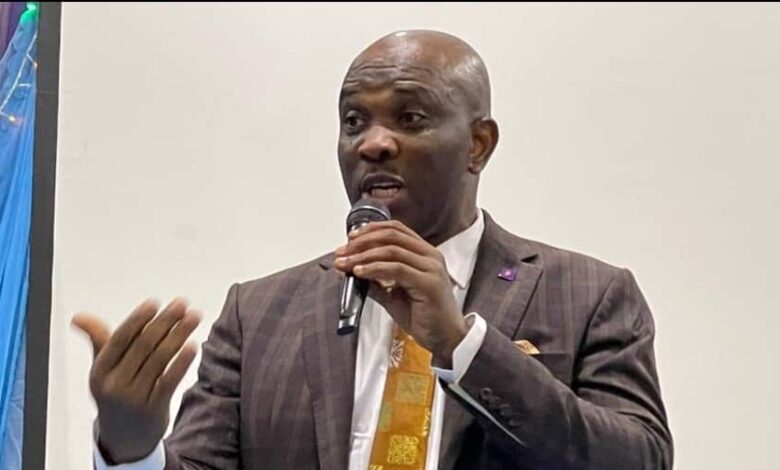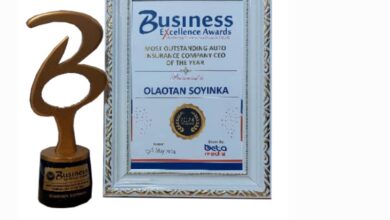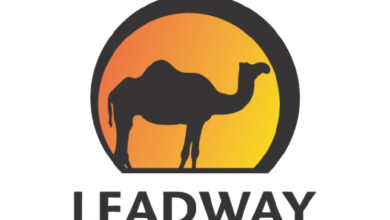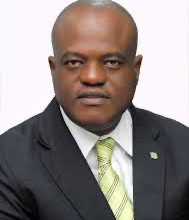Examining Issues Militating Against Insurance Growth In Nigeria

Mr. Rasheed Bolarinwa
By Edet Udoh
The Nigerian Insurance sector was described in Nigeria’s development plan, Vision 2020 as “A grossly untapped opportunity”. That apt description of the sector shows that the insurance sector is a beautiful bride yet to be discovered by a wandering groom. With approximately 70% of the 200 million strong population living below the poverty line, over half of the population living in rural areas, 52.5% of adults being completely excluded from financial services, a growing economy amidst higher inflation, social unrest, poor basic public infrastructure, and corruption concerns, Nigeria offers great opportunities and challenges for virtually any type of business.
Insurance in Nigeria can be traced back to the 20th century when the country’s economy was just surviving on agriculture. These were the days when merchants would need to transport their cash crops to Europe and reduce the risk of such transportation. This was responsible for the dominance of marine insurance in Nigeria at that time.
Despite its importance for economic development, the gross premium collected by insurance companies in Nigeria is about 1.9 billion United States Dollars compared to the 3.8 billion United States Dollars collected in South Africa.
In the United Kingdom, the insurance industry contributes about 20% of the total GDP of the country. In South Africa, it contributes 17% of the total GDP and, in Kenya, the industry contributes 3.4% of the nation’s GDP.
Sadly, after 62 years of independence, the Nigerian insurance industry is still crawling with dual problems of little knowledge of its values and acceptance by the populace mostly ignorant of the values of insurance. These are among the key hinderers of mass patronage, growth of premium generation and meaningful contributions to the Gross Domestic Product (GDP) of the economy.
Speaking on the theme paper, “Media As Catalyst For Insurance Inclusion” at the 2022 Insurance Industry Consultative Committee (IICC) Media Retreat in Ijebu Ode, Ogun State, Head, Corporate Communication, Polaris Bank Limited and President, Association of Corporate & Marketing Communications Professionals in Banks (ACAMB), Mr. Rasheed Bolarinwa, highlighted some of the issues militating against insurance growth in Nigeria and called for the need to address them just as he went ahead and suggested ways to address the challenges.
Bolarinwa who was not happy about the abysmal performance of the Nigerian insurance industry listed some of the issues hindering its growth to include doubts about insurance companies; hostile economy; trust issues emanating from hidden clauses; inadequate access to Information Technology, weak regulatory framework, lack of skilled personnel and poor awareness of insurance services by the prospective assured, among other factors.
Doubts About Insurance Companies
“The response that follows the mention of insurance or insurance companies to an average Nigerian is predictable. Negative reactions and lukewarm attitude are the kinds of feeling that come with an invitation to insurance policies. This informed the low patronage and acceptance of insurance companies operating in Nigeria.
“This untoward reaction and attitude by Nigerians, according to him, may not be unrelated to the poor attitude of the insurers towards the often repeated chorus of refusal to pay claims. Some insurance companies have truly developed a bad reputation for defaulting in the payment of claims. This unfortunately grew to become a negative public emblem that hangs beside their corporate identities. Invariably, the industry and the nation’s depleting GDP are big losers. Things have changed though as underwriters have paid and are still paying huge claims on losses suffered by millions of insured that we read daily in the media,” Bolarinwa said.
Hostile Economy
According to him, at this moment, insurance companies are not willing to invest the premiums in long-term instruments because of the fear of inflation built up over several years due to fiscal indiscipline and high inflation.
“Everybody knows in economics that short-term investment can only bring lower returns. With these trends, insurance companies will only be able to run on the spot; underwriters would not be able to pay claims. Only a viable economy that has a robust business environment can allow insurance companies to thrive,” he explained.
Trust Issues Emanating From Hidden Clauses
“Issues of hidden clauses in policy documents which often heighten public suspicion about the insurance business in Nigerians are a cause for concern. And players need to simplify onboarding and make insurance more desirable by the general public.”
Other key issues affecting the speed of insurance penetration in the country Mr. Bolarinwa listed include inadequate access to Information Technology, weak regulatory framework, lack of skilled personnel and poor awareness of insurance services by the prospective assured, among other factors.
Driving his point on the need for insurance to redefine their operations, the Marketing Communications expert drew the audience attention to what the Chairman of Heirs Holding, Mr. Tony Elumelu, said at the 60th anniversary of the Nigerian Council of Registered Insurance Brokers (NCRIB) where he challenged the operators on the need to be consistently professional and the need to address the critical issues affecting the industry’s productivity.
According to Bolarinwa, Mr Elumelu said “In redefining the practice and practitioners in the broking profession, the NCRIB should lead the war against many unethical practices that have been identified as the bane of the industry for years. These include premium rate cutting, delayed premium remittance, unremitted premium, overloading of premium, returned premium, fake documents, fraudulent claims, collusion to defraud, mis-selling, unhealthy competition, misrepresentations, manipulation of policy conditions, self-enrichment methods disguised as marketing expenses and many more.”
Need To Demystify Insurance
On the need to demystify insurance in Nigeria, Bolarinwa said, “Insurance will only take its pride of place as big a contributor to the nation’s Gross Domestic Product (GDP) as it applicable in other jurisdictions when all stakeholders in the risk ecosystem are deliberate, consistent and methodical in simplifying what insurance is all about in words and deed. Firstly, there must be a unanimity of purpose to bake insurance and make it BIG enough for all to benefits from the expected windfall.
“I propose that insurance should be presented as a Lifestyle add, adding a significant value, enhancing life and living. With creative and interesting story-telling narratives delivered with moving and crisp visuals delivered across digital and traditional platforms with strong orchestration and amplifications. There is bound to be a TOMA as end product, which is all that is needed for the immense opportunities in the sector to be unleashed. (To prepare this paper, I did a mini survey among 10 young staff in my department, mostly comprising the millennials & GEN Z demographics and the findings are insightful and revealing.
Need To Change Ugly Conversation Around Insurance
“It is on record that there was an attempt by the industry’s regulator, the National Insurance Commission (NAICOM), in collaboration with the Nigerian Insurers Association (NIA), to provide a better brand positioning for the insurance industry in the past.
“To improve the penetration levels, NAICOM launched the Market Development and Restructuring Initiative (MDRI) in 2009. All the industry-wide rebranding media campaigns which commenced in 2018 ended without much success, to address the negative perception of insurance by the public,” he stated.
Mass Media To The Rescue
According to Bolarinwa, “The mass media are vehicles and instruments for the socio-economic transformation and re-engineering of any society. Especially for a developing nation like ours, the media is required and, indeed, is fundamental for the penetration of important national agendas. The most prominent and widely known media of mass communication in contemporary Nigeria are newspapers, magazines, radio, television, and digital communication platforms and there is the need to further strategically explore them.
“Media is a strategic vehicle for dialogue and the acceleration of inclusive growth in any society. The media can continuously set agenda for the public to know more about the importance of insurance and to accept different risk-protection values inherent in modern insurance policies.
“As an agenda-setting mechanism, the media can be effectively used to change public orientation and achieve a pre-determined objective of making insurance valuable, acceptable by the general public. This moment is the most critical time for a more germane approach to how to communicate the essence of insurance to Nigeria’s huge population if we are truly concerned about achieving measurable and optimal penetration and reasonable acceptance.”
To address these issues and unlock insurance growth in Nigeria, Bolarinwa said “there is need for a deliberate collaborative campaign for national awareness about the importance of insurance” even as he called for the creation of a “dedicated jointly owned media by all stakeholders to serve as a news agency on insurance content shared with other media houses.”
While emphasizing the need for partnership between the regulatory bodies and the media industry, the Marketing Communications Expert said “Regulatory bodies in the Nigerian insurance industry are expected to partner the Nigerian media industry towards creating a diverse and inclusive newsroom; that has content development and coverage strategy that builds audience trust in insurance and provides for a better representation of different societies.”
Bolarinwa challenged the media outfits in Nigeria to tap into the unexploited gap created by poor insurance penetration in the country to be the champion to rescue the insurance industry from its woes.





